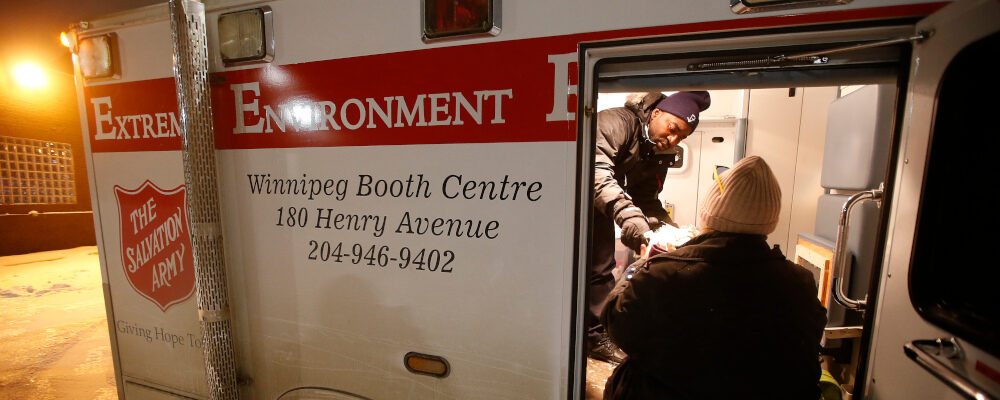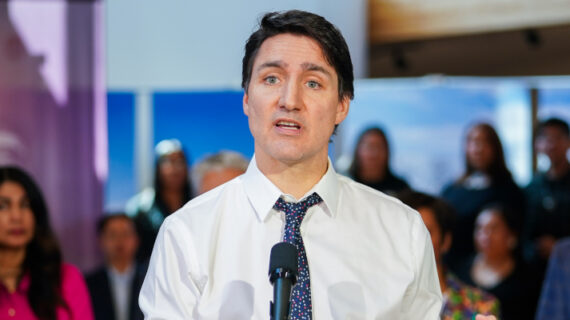Diversity should be more than a hashtag in virtuous social media posts. This buzzword deserves to have real weight and meaning in Canada, but getting there will take real work.
That’s especially true in the realm of religion where Canadians need to contend with two serious issues:
- Growing hostility toward faith and religious diversity
- The public nature of religious faith, not just its private or personal expression
If anything, as Canadian secularism has become bolder and more aggressive, respect for religious diversity has become timid and more tentative. A recent Cardus research brief, Toward a Hopeful Future: Facing Down Religious Hate, notes that anti-religious hate crimes annually reported to Canadian police more than doubled between 2009 and 2021.
In fact, police-reported crimes targeting religious persons or communities hit a new high of almost 900 crimes in 2021. Jewish Canadians remain the most targeted group, anti-Muslim crimes saw significant increases between 2016 and 2017, and anti-Catholic crimes more than tripled between 2020 and 2021.
Cardus’s surveys with the Angus Reid Institute, meanwhile, have found an increasingly negative attitude toward religion among Canadians generally. Less than a third of Canadians now see religious communities as mostly positive contributors to society. Between 2017 and 2022 the proportion of Canadians who see religious communities as hurtful for society grew from 14 percent to 22 percent.
It’s also notable that Canadians who are religiously committed, regardless of which religion they follow, tend to view every religion (even those different from their own) as more beneficial than damaging to Canadian public life. By contrast, non-religious Canadians tend to view every religion (except atheism) as more damaging than beneficial.
To be clear, public opinion is not necessarily linked to hate crimes. Only a tiny fraction of Canadians commits these crimes. Yet it stands to reason that a declining respect for or acceptance of religion and religious persons emboldens such actions.
And yet, there is hope in the face of hate.
Ontario politicians took a step toward reducing social hostility to religion. Last month, Cardus organized a gathering at the Ontario legislature involving representatives of the Progressive Conservatives, Liberals, and New Democrats meeting with a diverse group of religious leaders. They mingled with Muslims, Jews, Sikhs, Baha’i followers, and Latter-day Saints, as well as Catholic, Orthodox, Evangelical, and other Protestant Christians.
Importantly, political leaders welcomed all religious communities—and denounced intolerance and hatred of them. Implicit in their public statements is the belief that all these communities, which disagree fundamentally on theology and possibly on public policy too, play a constructive role in a healthy society.
It’s all about respect amid disagreement.
Or, as Cardus put it in marking the role of faith while celebrating the 150th anniversary of Confederation: “We can offer charitable critique if the conduct of other faithful people is at odds with Canadian tradition. But we must always vigorously protect the shared space in which all acts of faith occur, even those acts of faith required to disavow belief in the transcendent.”

Reducing social hostility toward religion is a continuing responsibility for all of us, including political, professional, business, media, and faith leaders.
That work will require acceptance of a simple fact: Faith and religion have a public dimension. They are not just personal and private.
Canadians may be pleasantly surprised to learn that faith and faith communities are a much more significant part of our social fabric than they realize. Some of the biggest and most famous hospitals in Canada would not exist today without the Jewish or Christian communities that started them. No government needed to ask them to do this. They did so as a religious expression.
Consider also the Halo Effect—a measure of the socio-economic benefit that a religious congregation contributes to its local community.
Based on the most recent research, it’s estimated that for every dollar that a congregation spends, the local community on average receives $3.39 in economic benefit. This comes in the form of meal programs, housing, addiction counselling, space for community events, and many other areas. Across Canada’s tens of thousands of religious congregations, the estimated national Halo Effect is $18.2 billion.
While we cannot ignore disagreements over hot-button issues or injustices by religious communities, the Halo Effect reminds us of the long, quiet, public expression of religion in Canada that doesn’t make headlines.
At this time of year, it’s Ramadan for Muslims and Passover for Jews, while Protestant and Catholic Christians are marking Good Friday ahead of celebrating the resurrection of Jesus Christ on Easter Sunday. (Orthodox Christians will do so in a week’s time.)
For believer and non-believer alike, this is an especially fitting time to recognize the public nature of religious faith and its contributions to our common life. It’s also a time to stand against social hostility toward faith. Doing so gives real weight and meaning to the Canadian commitment to diversity.




